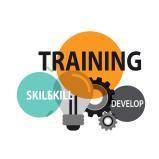Soft skills, often overlooked but immensely valuable, serve as the cornerstone for effective communication, collaboration, and leadership. Recognizing this, organizations are increasingly prioritizing soft skill training to cultivate well-rounded professionals capable of navigating complex landscapes with finesse.
Class Format: It would be experiential based on role-plays and experiential learning
What will you learn?
1. How to present yourself?
2. How to impress in person or through presentations
3. Grooming and Etiquette
4. Behavioral
5. Verbal and Non-verbal Communication
6. Presentation Skills
7. Goal Setting and Time-Management
8. Emotional Intelligence
9. Group Discussion and Mock Interviews
Class Takeaways:
1. You will be interview Ready
2. You will be confident
3. You will be ready for the promotion you are looking for
4. Your personality will be transformed
Incorporating experiential learning methodologies, such as role-plays, case studies, and interactive workshops, soft-skill training programs offer immersive and engaging learning experiences. Moreover, ongoing reinforcement and feedback mechanisms ensure sustained growth and skill refinement.
Ultimately, investing in soft skill training is not merely a discretionary expenditure but a strategic imperative for organizations aspiring to foster a culture of excellence, innovation, and adaptability. By nurturing well-rounded professionals equipped with a holistic skill set, organizations can navigate complexities with confidence, drive sustainable growth, and foster a culture of continuous learning and development.







